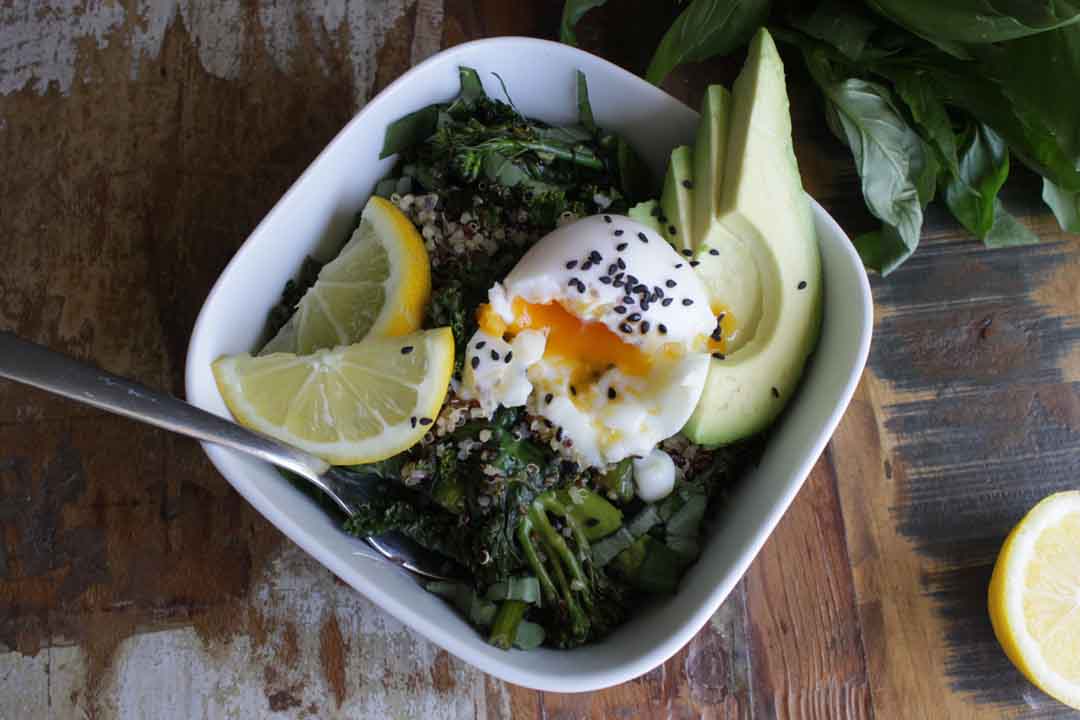A fresh and versatile bowl of greens that can be eaten any time of the day to provide a carotenoid (lutein and zeaxanthin) kick for cognitive function.
[otw_shortcode_divider margin_top_bottom=”30″ text_position=”otw-text-left”][/otw_shortcode_divider]
Dietary suitability







[otw_shortcode_divider margin_top_bottom=”30″ text_position=”otw-text-left”][/otw_shortcode_divider]
[tasty-recipe id=”727″]
Food as Medicine
Green leafy vegetables contain carotenoids that are compounds found in fruit and vegetables that give them their vibrant colours. You can see the carotenoids lutein and zeaxanthin when you look at the dark green colour of leafy and cruciferous green vegetables. (1) Consuming lutein and zeaxanthin found in vegetables such as kale and spinach, as well as egg yolk, improves cognitive function and can reduce the risk of age-related disorders. (1) (2) Eating lutein and zeaxanthin rich foods may also be able to boost brain function in older adults. (3)
Leafy green vegetables such as basil, kale and spinach are ranked as some of the top foods to consume as part of a healthy diet for helping prevent and manage depression. They are high in some of the key nutrients that are often deficient with mood disorders such as folate, iron, magnesium, potassium, selenium, thiamine, vitamin A, vitamin C and zinc. (4)
Green leafy vegetables also reduce the risk of cardiovascular disease with 200g of spinach, about a cup of cooked spinach, improving blood pressure and heart health (5).

